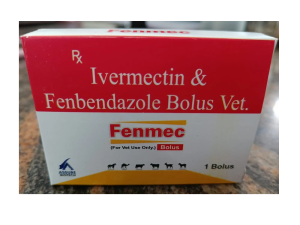FINALLY! A peer-reviewed article has been published in the Journal of Orthomolecular Medicine (Volume 39, Number 3) explaining the mechanism behind the success with using off-label drugs like Ivermectin, Fenbendazole and Mebendazole to treat cancer. I had initially thought their success was primarily the result of cancer being misdiagnosed, when a parasitic egg sac was thought to be a tumor, and the drugs were just doing that for which they were originally intended. This article, just published in September, explains how these drugs affect the mitochondrial-stem cell connection (MSCC) and directly disrupt the production of cancer stem cells.
From the article: “Ivermectin has anti-cancer properties and induces autophagy and apoptosis of cancer cells (Liu, et al, 2020). Ivermectin has shown a significant impact on various cancer cell lines (Jaurez, et al, 2020), inducing apoptosis in cancer cell lines in vivo (Sharmeen, et al, 2010) and significantly reducing tumor volume compared to a control (Jaurez, et al, 2020).”
In addition, “Mebendazole and Fenbendazole are very structurally similar and generally just as effective in cancer (Bai, et al, 2011; Florio, et al, 2019; Schmit, 2013), in both in vitro and in vivo models (Song, et al, 2022). “ These Benzimidazoles “have anti-cancer effects through microtubule polymerization, induction of apoptosis, cell cycle arrest (G2/M), anti-angiogenesis, blocking glucose (Son, et al, 2020) and glutamine pathways (Mukhergee, et al, 2023).”
The article actually presents a comprehensive, orthomolecular protocol for the treatment of cancer through the MSCC theory, which “suggests that cancer originates from chronic oxidative phosphorylation (OxPhos) insufficiency in stem cells. This OxPhos insufficiency leads to the formation of cancer stem cells (CSCs) and abnormal energy metabolism, ultimately resulting in malignancy.” The protocol includes a combination of epigenetic factors, including Vitamin C, Vitamin D, Zinc, off-label drugs, fasting, a ketogenic diet, press-pulse therapy, physical activity and hyperbaric oxygen therapy.
The scientific support for this metabolic approach to cancer treatment will hopefully pave the way for a complete paradigm shift within the cancer healthcare world and lead to far better outcomes.




This Post Has One Comment
Very encouraging!
Comments are closed.